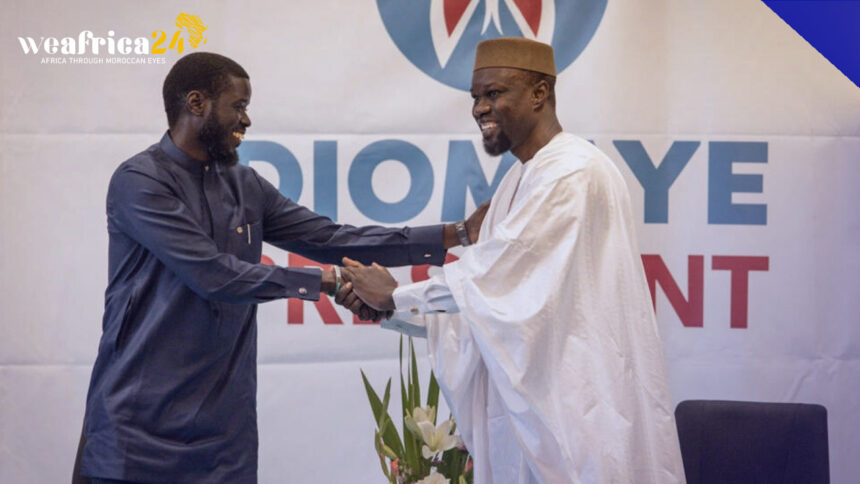In a swift move following his inauguration on Tuesday, April 2nd, the new Senegalese President, Bassirou Diomaye Faye, issued a decree appointing Ousmane Sonko as Prime Minister, marking his first official action in office.
Bassirou Diomaye Faye’s decision to nominate Ousmane Sonko, a key figure in his election campaign, was broadcasted via the state television channel RTS, with the decree read by the Secretary-General of the Presidency, Oumar Samba Bâ. Sonko expressed gratitude for the trust placed in him by President Faye, pledging his loyalty and dedication to the role.
Sonko, the founder of the Patriotic Senegalese Movement for Work, Ethics, and Fraternity (Pastef), who was unable to run for the presidency himself, now assumes a significant position within the country’s institutions. His appointment underscores a collaborative approach to governance, ensuring that Faye, his designated candidate, doesn’t bear the burden of leadership alone.
In his address to the nation, Sonko reiterated the collective nature of their vision, emphasizing the shared responsibility of all Senegalese citizens in realizing their goals for the country. He pledged unwavering commitment to achieving the promised “rupture, progress, and definitive change for the betterment of Senegal.”
The swift appointment of Sonko as Prime Minister reflects a strategic decision to share executive control, with the public acclaiming his role in the transition of power. Despite his subdued presence during the inauguration ceremony, Sonko’s influence was palpable, with attendees chanting “Merci Sonko!” (“Thank you, Sonko!”) in recognition of his pivotal role.
As Sonko assumes his new role, he assures the nation of forthcoming appointments to complete the leadership team, underscoring the collaborative effort between himself and President Faye. This move reaffirms their commitment to inclusivity and transparency in governance, setting the stage for a new chapter in Senegal’s political landscape.







